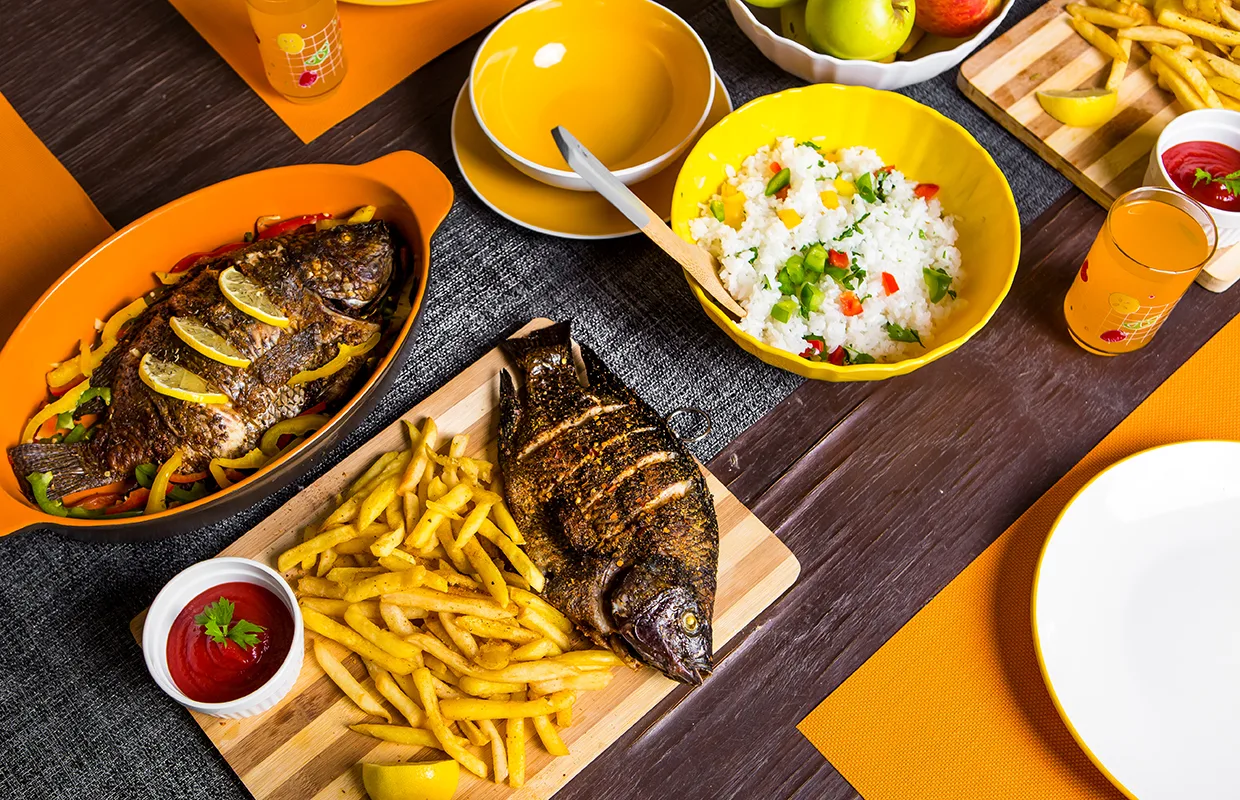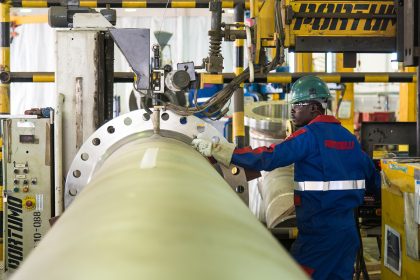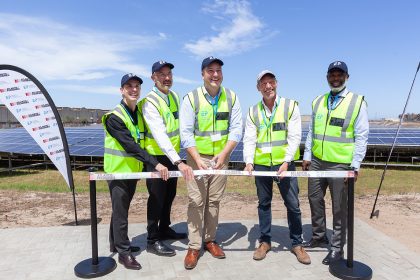Building a name for freshness and quality, Yalelo Zambia is passionate about putting a fish on every Zambian’s plate. Ulric Daniel, CEO, speaks to us about the company’s journey to success and work towards a sustainable and supportive future.
BREAMING WITH SUCCESS
Loosely translating to the phrase ‘today’s fish’ in the local language of Bemba, Yalelo Zambia (Yalelo) is the largest aquaculture business in sub-Saharan Africa, proudly producing the freshest and tastiest bream that families trust and love.
Founded in 2011 with the vision of becoming an aquaculture powerhouse by sustainably developing regionwide fish protein resources, the company grows its fish in the clear waters of Lake Kariba inside large cages that provide an open environment for the bream to swim far and deep against the lake’s natural currents.
“People buy our fish because of the freshness and taste, which is something we are extremely proud of,” introduces Ulric Daniel, CEO.
Yalelo achieves this world-class palatability through a combination of its environment, which produces healthier and stronger fish, and a high-quality diet consisting of locally-grown soy and maize, that keeps the fish healthy with an unparalleled taste profile.
The company has been through myriad learning curves to get to where it proudly stands today, now harvesting more than 18,000 tonnes (t) of fish per annum.
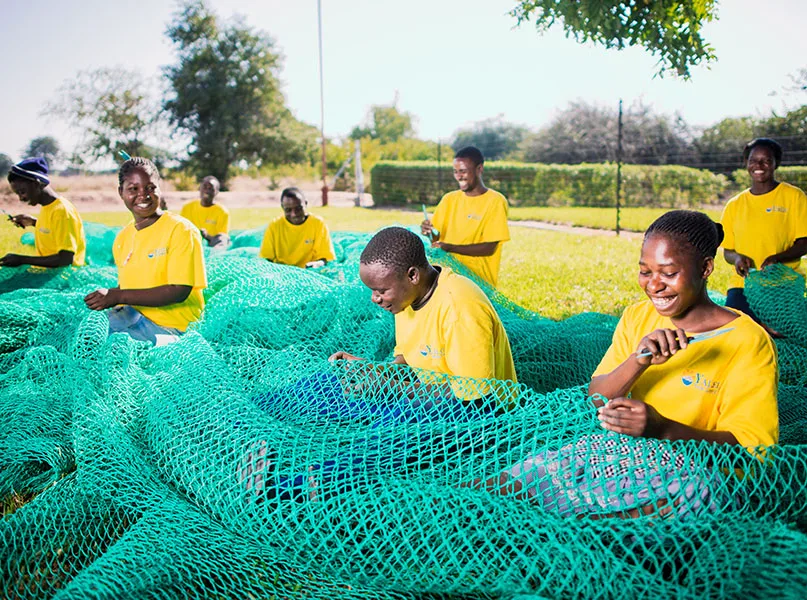
Meanwhile, Yalelo is actively entering untapped markets, launching new product lines, opening additional local fresh fish shops, and testing the quick service resturant waters with fish and chip shop investments.
Ulric has been interested in food production since childhood, having grown up on different poultry farms across South Africa (SA).
“I studied microbiology at university and wanted to look at food production from a safety point of view. However, I realised afterwards that I was not meant to be stuck in a lab all day, so I decided to change career and become a field officer for a company buying crops to be traded on the SA commodity market,” he expands.
This change in environment led Ulric to travel throughout Africa before landing in Zambia, where he found his passion in helping underdeveloped countries by providing reliable, healthy, and sustainable protein options.
“The impact you have when offering a top-quality protein source to those who may not have had access before is incredibly rewarding.”
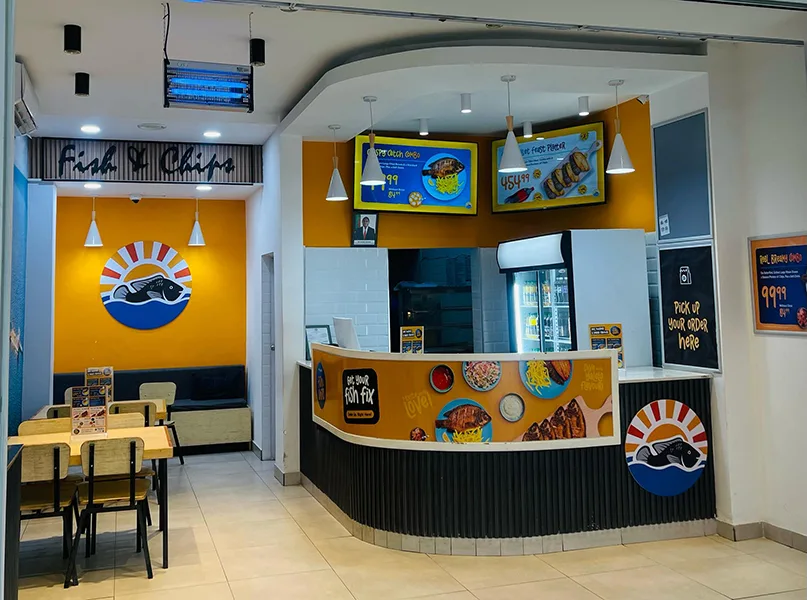
A TASTE YOU CAN TRUST
Currently, Ulric views the aquaculture industry as full of untapped potential.
“It is particularly exciting in an African context because it’s a relatively new sector and there are many lakes in the continent which can be used for aquaculture production,” he insights.
“However, it can be extremely difficult to get into, which means you must be especially disciplined to find success.”
The barrier to entry into the industry is caused by vast variables beyond anyone’s control and unique to aquaculture, such as storms, oxygen levels in the water, and other environmental factors that can have a major impact on stock.
Despite these challenges, the sector is continuing to expand and grow in popularity as countries such as Zambia, Malawi, Zimbabwe, Namibia, and others are enjoying fish to the point that consumption is, at times, higher than that of chicken.
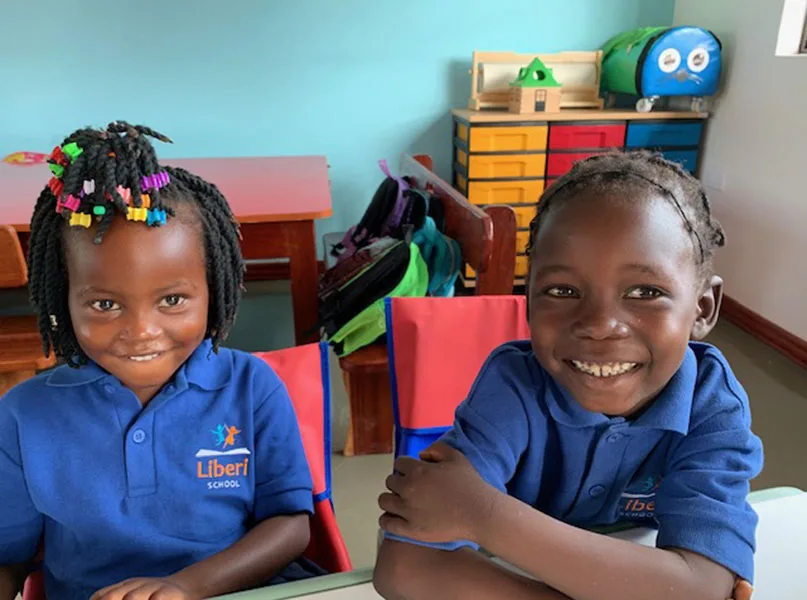
This increased consumption is proving to be exponentially beneficial to the diets of local communities as it is a lean protein with omega-3 fatty acids that are otherwise not readily available to those who need it most.
“Fish can also be sustainably produced, so you can have a neutral carbon footprint as a commercial operator because aquaculture does not have the adverse effects on the environment that other large-scale livestock farming does,” details Ulric.
What further serves to differentiate Yalelo from other fisheries is the skills – both imported and local – the company has internally developed.
Operating within such a specialised sector, the company has rigorous training programmes to develop and promote staff from within and ensure industry-leading production.
Just as crucial to Yalelo’s ability to service regions far and wide across Africa is approach to its taste profile and high-standard shopfronts.
“Our taste profile comes from our feed, in which we have a 60 percent joint venture (JV) with the Aller Aqua group from Denmark, where the feed quality is the best on the continent,” explains Ulric.
Yalelo’s shopfronts, meanwhile, are kept clean, neat, and tidy to ensure customers have an enjoyable shopping experience, even in the most rural locations.
“We respect every customer and feel they deserve to have a clean and positive shopping experience, no matter who they are or where they are located,” explains Ulric.
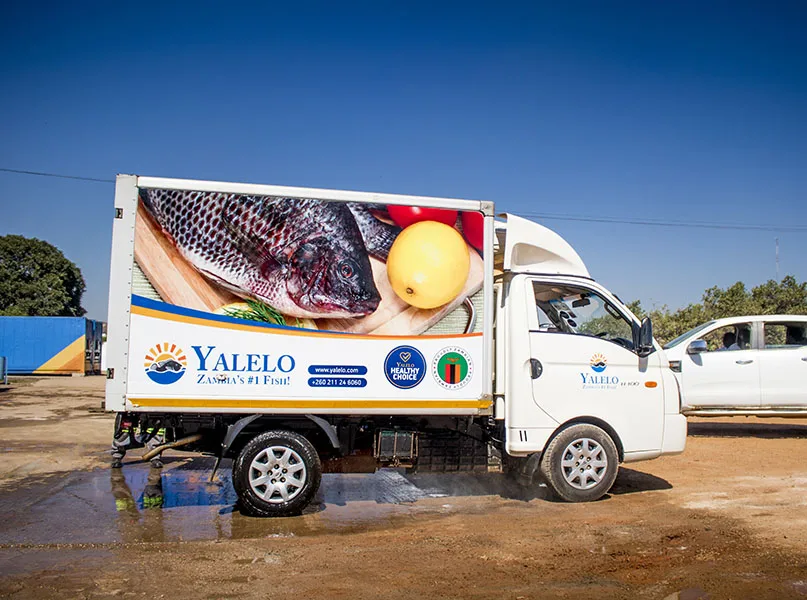
ZAMBIA’S NUMBER ONE FISH
Yalelo proudly holds the title of producing Zambia’s number one fish through its dedication to consistent quality, high-end supplies, and a rapidly expanding geographical footprint.
Equally, the company maintains open communication and honesty with its customers to show that its fish remains 100 percent free from antibiotics and growth hormones through the entire production process.
Just as important to maintaining its hard-earned reputation is Yalelo’s cold chain integrity, which is paramount to ensuring traceable and dependable quality.
“Our customers have faith that even if they’re buying fish in the middle of the Northern Province of Zambia, it’s always fresh because of our reliable cold chain,” confides Ulric.
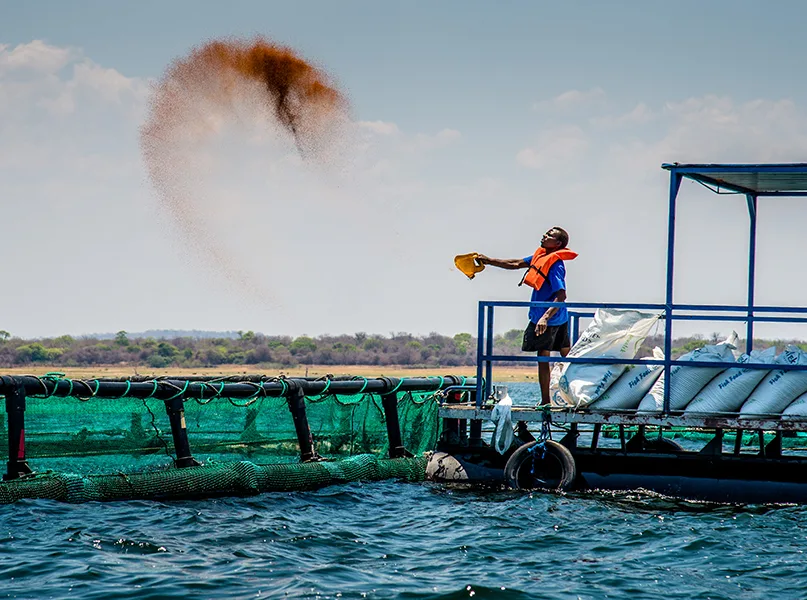
Examples of Yalelo’s high-standard cold chain practices include its custom-made crates and temperature probes which accurately monitor the exact conditions fish is transported in throughout the journey.
Additionally, the consistent production of ice is crucial to Yalelo’s cold chain integrity. The company has large ice-producing machines in-house and is expanding these facilities in line with increased production.
“We have the ability to produce excess ice for the entire processing and harvesting journey. The availability of ice is a significant part of cold chain management,” informs Ulric.
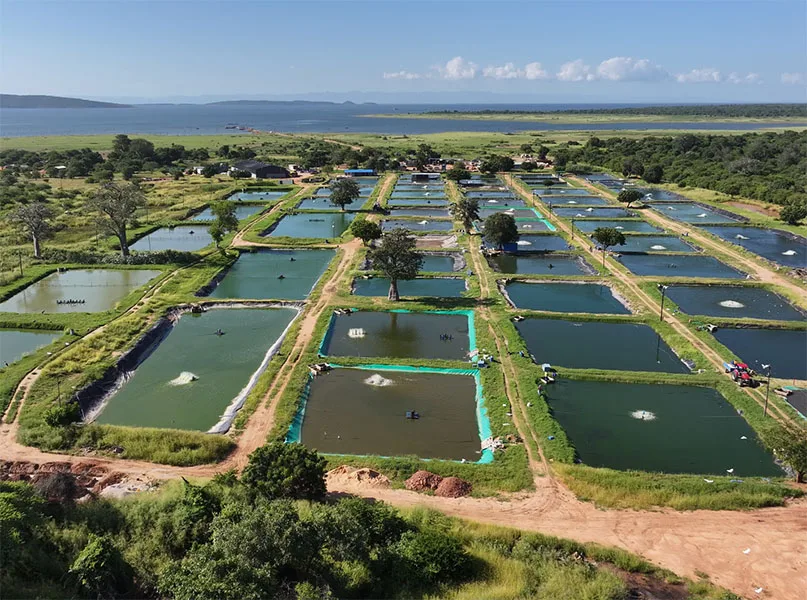
STABILISING REGIONAL FOOD SECURITY
Yalelo strives to stabilise regional food security by sustainably producing abundant and accessible protein for communities, and it seeks to continue doing so by expanding its geographical footprint even further to bolster local economies.
“The more accessible you make fish products, the more people will eat protein, which offers amino acids and other nutritional benefits,” indicates Ulric.
By offering a physical storefront in traditionally hard-to-reach locations, the company is not only making protein more accessible but also generating employment opportunities.
This ultimately creates disposable income for those who need it most, as a great percentage of customers are not just buying fish for their families but because they’ve set up their own small businesses, thus taking distribution a step further and enabling a circular economy.
“You see shops open up outside our properties with people supplying different amenities like cell phone data or groceries. Whole microeconomies start up around the production facilities, which creates more disposable income and means people can buy protein,” informs Ulric.
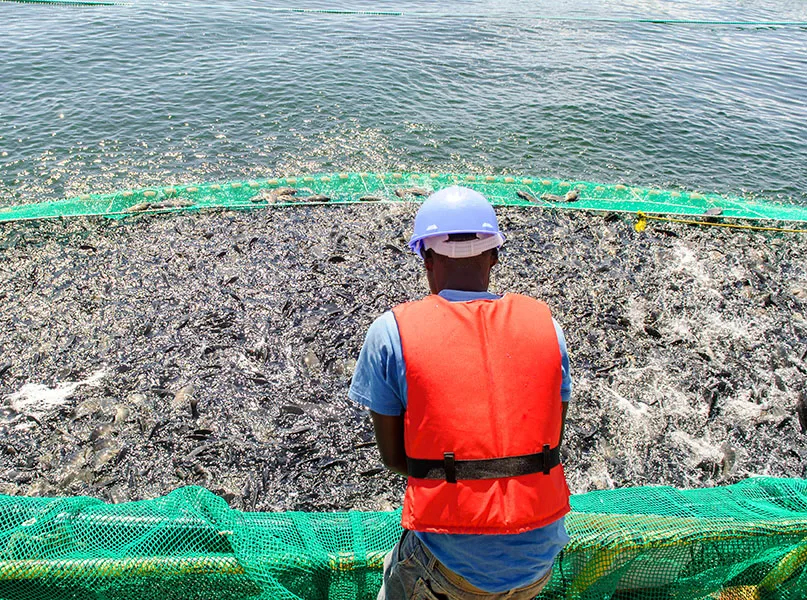
Zambia is unique in that the majority of maise and soy in the country is produced by smallholder farmers. Therefore, the feed mill raw material requirement also acts as a boost for employment and cash flow through the economy.
To contribute to local communities even further, Yalelo participates in many corporate social responsibility (CSR) practices, including clean-ups, fixing community roads, supplying potable water systems, anti-malaria drives, and more.
One of its primary relationships is with the Liberi School in Siavonga, Zambia, through which Yalelo is in the process of donating land to the school and is in a privileged position to supply students with fish for lunch three days a week.
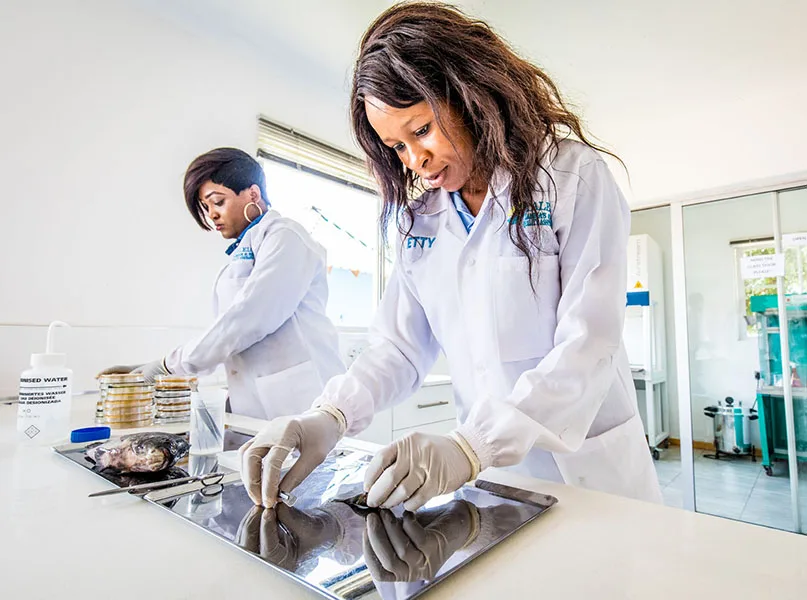
Close to Ulric’s heart is his work with the Explorers’ Preparatory School in Nkwashi, where he established an exposure programme to promote agricultural practices and their importance to school children.
“I invite corporate companies to talk to kids about how you rear chickens, plant crops, or milk cows, as it’s important in this day and age to help them understand where their food is coming from, regardless of diet.
“I’ve even seen parents get involved and end up asking more questions about the process than the kids sometimes do!” he passionately concludes.
Ultimately, as Yalelo continues to look to the future, it is working towards empowering individuals and communities whilst consistently producing safe, healthy, and delicious bream across Africa and beyond.



